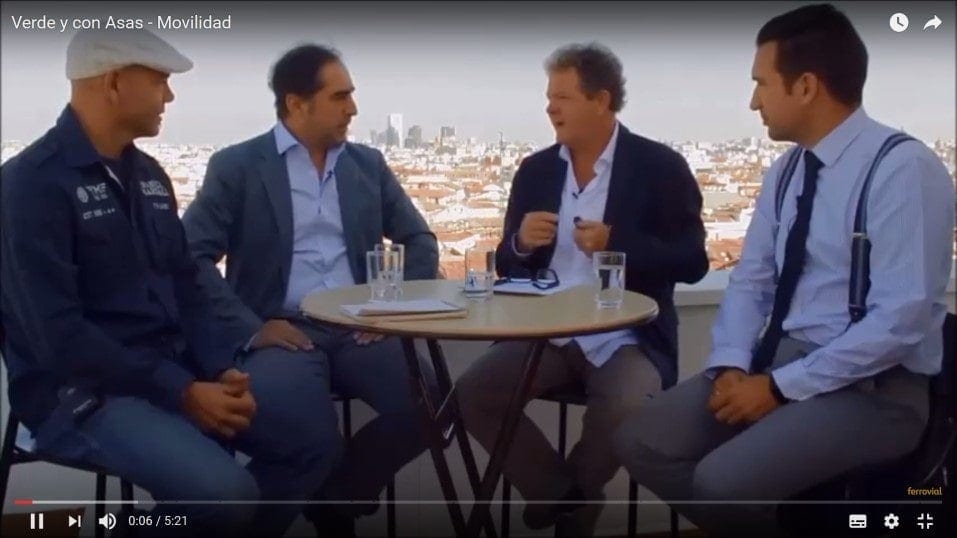
The following conversation with a taxi driver takes place while listening to the radio programme Arriba España (Long Live Spain), led by Juan Luis Cano, whom I have greatly admired since the setting of the last millennium, when I was lucky enough to work at the M80 radio station as an aspiring journalist starting out in communications. You can tell a good professional by how he or she treats interns.
“I need to get to Caser square.”
“OK, let’s go towards Las Tablas. Nobody can quite say what the real name of that square is, but we all know it because of the Caser Insurance building there. What route do you want me to take?”
“Whichever is quickest and easiest right now…”
“OK, let’s see what Waze has to say.”
While the satnav calculates the best route, using data generated in real time by thousands if not millions of devices and the intelligence of the users themselves, Juan Luis, together with Miguel Lago and José Boto, are interviewing Antonio Lucio, an expert on sustainable mobility (a hot topic at the moment), in the [eco] section Verde y con Asas of his programme. Madrid, which has exceeded permitted levels of pollution for the seventh year running, has recently become the first Spanish city to impose traffic restrictions because of pollution, declaring its city centre out-of-bounds for most vehicles. 
In addition to reducing the number of cars and banning the use of those with even or odd number plates – a restrictive measure that is now quite common in large European cities the likes of Paris, Rome, Athens or Milan – the solution will necessarily involve promoting public transport, bicycles, electric cars and, basically, sustainable mobility.
This unstoppable trend has been called MaaS, or Mobility as a Service, a new concept of transport which is similar to what the telecommunications sector is already offering worldwide, with different costs depending on the needs of each user, including collective intermodal transport, taxis, rental cars, bicycles, shared cars, etc. and the unavoidable use of smartphones. This brief video from the London Department for Transport provides a graphic explanation:
This intermodal combination is essential for reducing our dependency on prívate cars. It also marks a profound change in the concept of ownership, which is set aside in favour of use or experience.
Although the idea may seem rather far-fetched to us still, so was the vision of changing ownership of a CD for payment to access whatever song you fancied in real time in the cloud. What seemed unachievable then has become the norm in the space of a few short years, Spotify style. Jeremy Rifkin was already talking about this in the year 2000, in his book ‘The Age of Access.The New Culture of Hypercapitalism’, when the current millennium was only just starting:
Imagine waking up one day to find that virtually every activity you engage in outside your immediate family has become a “paid-for” experience. In the hypercapitalist economy, buying things in markets and owning property become outmoded ideas, while “just-in-time” access to nearly every kind of service, through vast commercial networks operating in cyberspace, becomes the norm. We increasingly pay for the experience of using things – in the form of subscriptions, memberships, leases, and retainers – rather than for the things themselves.
It seems that the future of transport is already here. And, as The Economist claims in this interesting article, it all starts with a simple app.





There are no comments yet